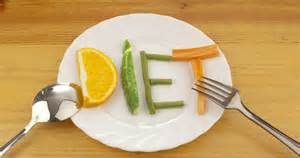The fields of exercise science and nutrition are ever evolving. As research goes on, the more we find out and the more we realize just how wrong we have been. Trying to keep up with the latest findings regarding health, nutrition and exercise can be very confusing. You may hear one thing on the radio, read something different in a magazine, and hear an opposite opinion from your neighbor who’s a doctor. From one day to the next, we can hear contradictory information about exactly the same subject. There is no shortage of information out there on all aspects of health, but the question is, who should we believe?

One of the big problems we face is that newspapers, emails, and media sources are not always discerning over what they choose to make available to the public. Many times, the popular media draws conclusions before all the research is in.
When it comes to the studies we read about, we have to ask what type of research was used. Was it a randomized—that is, were half the people given the experiment and half given a standard treatment or no treatment? Or, was this a cohort study where a large sample of people is used over a long period of time. The Framingham study on heart disease, or the Nurses’ Health Study , to asses risk factors of heart disease and cancer, are examples of this. Aside from these points, it is important to check the following:
- Was the study done on humans or animals?
- Was the study done long enough to see a result (heart attack or broken bones) or just long enough to see symptoms that would lead to such an outcome (narrowing of the coronary arteries and changes in bone density)?
- Is the evidence consistent with similar studies?
- How large is the sample size? Large studies tend to spot important differences between two groups that might be missed in smaller ones.
Keeping all this in mind, let’s take a look at ideas we used to encourage but are now discouraged.
Weight Loss
What was:

For the last 50 years, if you wanted to drop some weight, you were told by your doctor or friend to go on a diet. There are hundreds and hundreds of diets and all of them work in different ways. Most of them will indeed help you lose weight. The problem? It’s a short term fix. The long-term failure rate of diets is about 96%, and if that isn’t bad enough, diets can cause permanent damage to your body. Down the road, not only won’t you be able to sustain the weight loss, you may also not be able to lose weight again. This is especially true when a large amount of weight has been lost too rapidly.
What is:
If you need to lose weight—don’t diet! Stop thinking about weight loss and start thinking about health. There are 10,000 people who have been successful in long term weight loss listed in the National Weight Control Registry. Not all of them lost weight the same way, but they have some things in common. Almost all of them weigh themselves weekly, walk or do some other form of exercise daily, and they all understand portion control. The key to real weight loss is changing habits and behaviors, not which diet you pick. So, figure out for yourself or, get some help from a health coach or other weight loss specialist and start slowly changing your behaviors—the rest will fall into line.
Eating Fat
What was:
We used to tell people to buy and eat low fat or no fat foods. Why is it that when we started promoting low/no fat the obesity epidemic got a lot worse? People started thinking they could eat without portion control if a food was low fat. It was thought that eating fat was the cause of weight gain, heart disease, and cancer. And it’s not!
What is:
When we don’t eat enough fat, we eat more calories, not less. Fats are vital for brain function and other essential tasks the body must perform. Certainly avoid all trans fats, but healthy fats like nuts, olive oil and avocado are great for you. And it seems to be that saturated fats, what we once thought was the root of all problems regarding heart disease, is really not so bad if kept to reasonable amounts. The American Heart Association says they are bad, but other studies don’t seem to indicate that. This doesn’t mean that you should eat meat all day long, but the evidence pointing to saturated fats being evil is questionable. I tried eating some very fatty cheese one week. You know what? I wasn’t hungry most of the day and lost weight over the week, too!
Sugar or Artificial Sweetener?
What was:
The thinking was: cut sugar, cut calories, make people thin and prevent diabetes. Instead, artificial sweeteners are causing people to become obese and are not preventing diabetes. In fact, artificial; sweeteners might be causing diabetes.
What is:
Instead of diet drinks, use water or naturally flavored water. Seltzer is also okay. Better to use half a teaspoon of real sugar in your tea or coffee than artificial sweeteners. A small amount of sugar is less poisonous than any artificial sweetener. Learn how to eat whole and real foods! Diet foods are bad for you!
Restricting the amount of times you eat per day
What was:
The thinking used to be, “If I eat less often and less food, I’ll stay thin. I won’t come to obesity, high blood pressure, diabetes and heart disease.” We had this one wrong also.
What is:
It’s not just about the number of calories you consume each day. When there are large gaps in between meals, you will eat faster and eat more calories when you do eat. You are hungry and then you overeat. And when you overeat, you discharge insulin in large amounts all at once. We call this insulin spikes. This leads to increased hunger and it will lead to insulin resistance down the road. That causes type 2 diabetes. So, eat 3 small meals a day, eat 2 or 3 snacks, and if you want to help yourself keep your weight in check, don’t eat late at night. Make a curfew for yourself and stop eating by 8 p.m. if you can.
I need to Exercise
What was:
Exercise is needed for weight loss. Exercising will burn a lot of calories and it will help one lose weight. One must exercise 20 minutes, 3 times a day.
What is:

Everybody needs to exercise. We need to exercise most days of the week for a minimum of 30 minutes each bout. Exercise is actually a minor player in weight loss as far as calorie usage.
However, exercise is the closest thing to a magic pill for health. It helps us with weight loss because of the changes it makes in how we metabolize certain foods, particularly sugars and carbs. Exercise will bring cardio-respiratory fitness which is the best predictor of overall health, along with increased life-expectancy. A well-rounded program that also includes muscle building will keep our metabolic rate higher and prevent insulin resistance. This has a little to do with weight loss—exercise is good for overall health. Exercise lowers cholesterol and blood pressure, too. Exercise will give you better health! It’s not just about weight loss.
A calorie—is it just a calorie?
What was:
Calories are all created equal. Protein and Carbohydrates at 4 grams per calories and Fats are 9 grams per calorie. And that was that. So in theory, you can eat anything as long as you eat the right amount of calories. You will either gain if you eat too much, lose if you eat less than you use or stay the same if your calories in and out are balanced. So eat pizza or eat a salad, eat chocolate or eat salmon—as long as your calories are in line and you are doing the math, you should be okay!
What is:

Different foods have a different effects and they aren’t metabolized the same. Portions still matter very much, but if you eliminate processed foods (especially those high in sodium), junk foods, high fructose corn syrup and sucrose and certainly trans fats, you will probably start losing weight. Your health will improve! It helps to keep all sugar to a minimum and avoid processed meats like deli. It is good to include healthy lean proteins with your meals.
One more thing—it takes our brains 20 minutes to process that we are full—so don’t rely on that. Eat slowly, chew, and when you finish your meal, leave the kitchen or dining room and stay busy for a while. Drink water if you need to and you’ll see you won’t feel hunger anymore.
My staff and I work hard to stay up to date with the latest information based on good science in order to help our clients. But you need to keep up also. Staying current and using reliable sources of information about health, nutrition, fitness and weight loss will “add hours to our day, days to your year and years to our life”.


Great great article Alan! Going to share on my page! Keep up the important thruth sharing work!